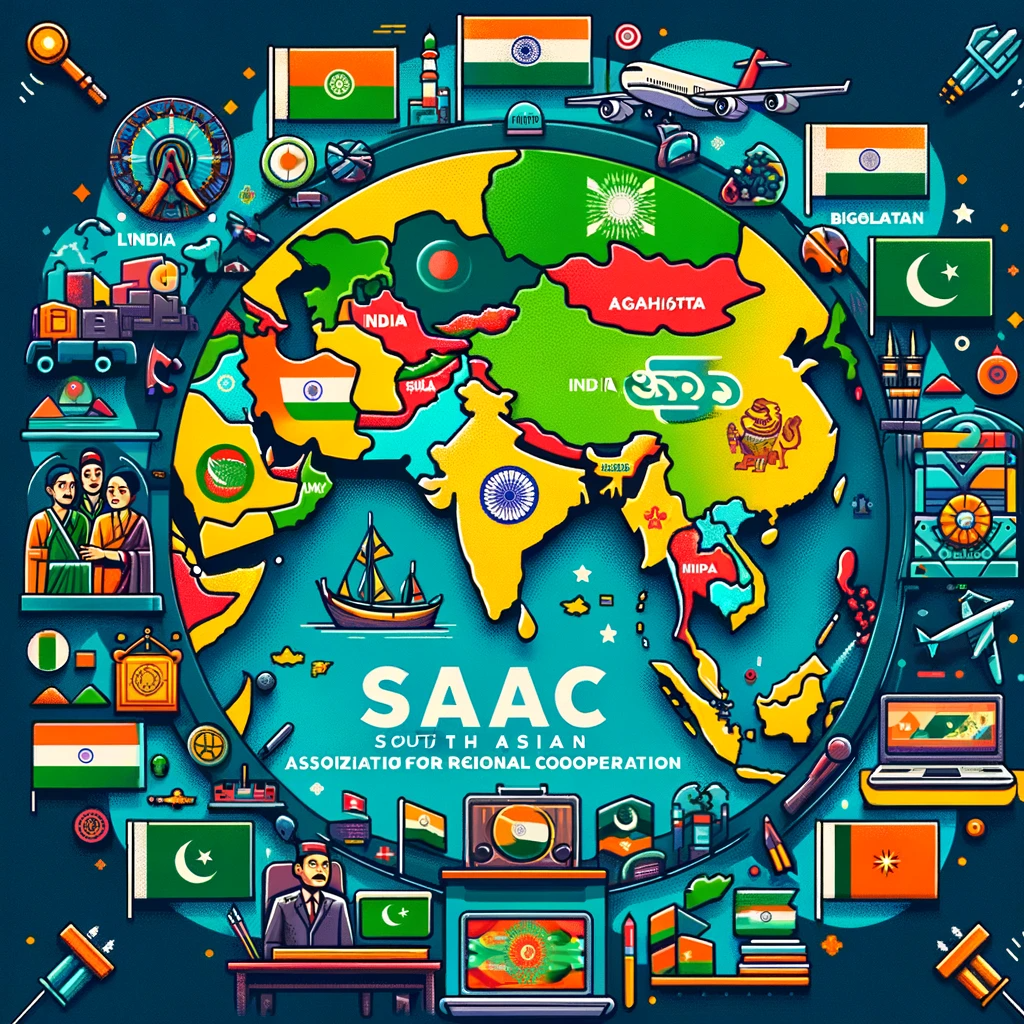


The South Asian Association for Regional Cooperation (SAARC) is a prominent geopolitical union and regional intergovernmental organization in South Asia. Established on December 8, 1985, in Dhaka, Bangladesh, SAARC aims to promote economic growth, social progress, and cultural development within the South Asia region. The member states include Afghanistan, Bangladesh, Bhutan, India, Maldives, Nepal, Pakistan, and Sri Lanka. These countries encompass a significant portion of the world’s population and a considerable part of the global economy.
The Secretariat of SAARC, headquartered in Kathmandu, Nepal, coordinates and monitors the implementation of activities, serves as a channel of communication between the Association and its Member States as well as other regional organizations, and organizes meetings. The official language of the organization is English.
SAARC has several specialized bodies and regional centers across its member countries to enhance regional integration and cooperation in specific areas. These include the SAARC Development Fund, South Asian University, SAARC Disaster Management Centre, and SAARC Cultural Centre, among others.
Politically, SAARC has faced challenges due to the complex inter-state relations in the region, particularly between India and Pakistan. This complexity has sometimes hindered the organization’s effectiveness and limited its ability to achieve its full potential in regional integration. Despite this, SAARC has made significant strides in various fields, including the creation of the South Asian Free Trade Area (SAFTA) aimed at reducing trade tariffs and promoting economic integration.
The SAARC Visa Exemption Scheme, launched in 1992, is another initiative aimed at enhancing people-to-people contact among member countries. It facilitates the movement of certain categories of dignitaries within the region without a visa.
SAARC also acknowledges and honors contributions in various fields through awards like the SAARC Award, SAARC Literary Award, and SAARC Youth Award, which recognize and encourage individuals and organizations contributing to the betterment of the region in areas such as peace, development, and regional cooperation.
While SAARC continues to work towards regional cooperation and integration, it faces ongoing challenges related to regional conflicts, political instability, and the need for more robust economic collaboration. The organization’s future success depends on its ability to navigate these challenges and foster a more integrated and cooperative South Asian region.